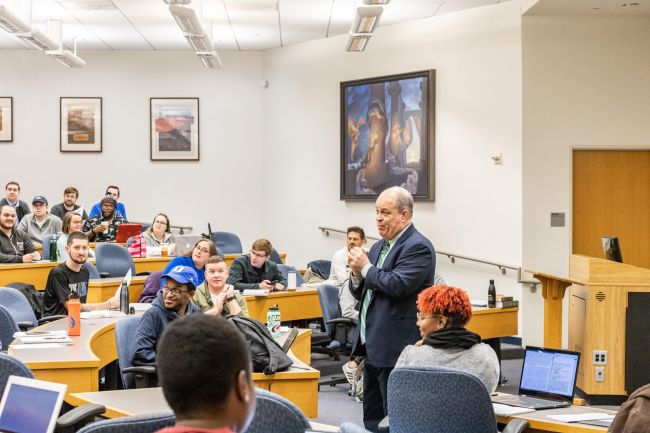Whether you are interested in a full-time, residential graduate program, or one that allows you to pursue a degree while you remain in ministry full-time, Duke Divinity School offers a program to fit your goals.

Master of Theology (Th.M.)
The Master of Theology (Th.M.) degree is designed for graduates of accredited theological schools who desire to continue or resume their theological education to enhance their professional competence in specific areas of study.
Through this degree program, students can pursue advanced training—with opportunities to take doctoral seminars and engage closely with professors on a written thesis—to enhance their ministry or prepare for a doctoral program.
Online Certificates and Courses
Duke Divinity also offers non-degree online courses and certificates for practitioners seeking to expand and refresh their knowledge and skills. Our courses nurture vocational renewal, theological imagination, and practical resources for ministerial leaders and Christian professionals.

Non-Degree Courses and Certificates
Find programs for Duke Divinity alumni and other practitioners seeking to expand and refresh their knowledge and skills through non-degree digital courses and certificates. Our courses nurture vocational renewal, theological imagination, and practical resources for ministerial leaders and Christian professionals.